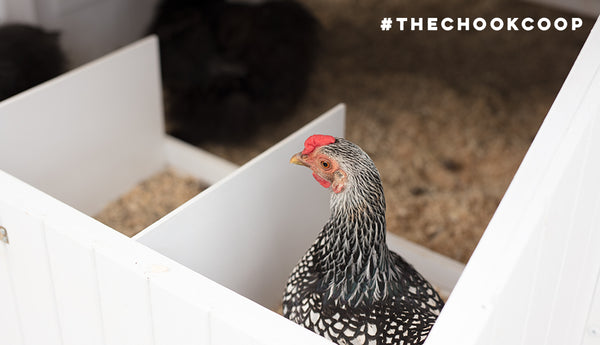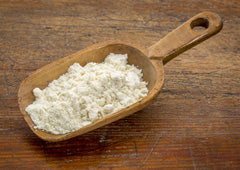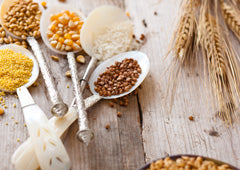It’s the words on everyone's lips, and the product in everyone's pantry and beauty cabinets; coconut oil is undoubtedly the latest craze in the health food and beauty world. However, with all the hype surrounding coconut oil, it can sometimes be hard to separate fact from fiction and know just how to use this ‘miracle’ product to harness it’s sought after health benefits. Below is a very simple guide to coconut oil, a brief history, what it is, how it works, the benefits of using it, and of course how it can benefit our favourite feathered friends. One thing we do know is that coconut oil is here to stay and for good reason.
A Brief History
Coconut oil’s popularity appears to be a relatively new trend, but it has actually been a staple for thousands of years, being particularly prolific in tropical regions. Its uses were so well respected and documented over 4,000 years ago. The humble coconut was seen as such an effective medicine that it is credited with saving the lives of many soldiers during World War 2.
“During World War II, coconut water was administered to soldiers intravenously to provide sterile hydration. Individuals pierced a young coconut with an IV tube and placed it directly into the soldier’s vein. It’s still used this way today in remote areas of the world.” Source
However in 1954 when coronary heart disease was fast becoming the primary cause of the mortality in the American adult population, a young researcher published two academic papers damning the reputation of all saturated fats. His research described the effects of saturated fats and cholesterol forming blocked arteries, and possibly leading to potential heart disease. He also detailed the benefits of consuming polyunsaturated fatty acids from the oil of corn, soybeans and sunflower seeds for lowering cholesterol in the blood. Despite research contradicting this, coconut oil and all saturated fats essentially disappeared for many decades. The American marketing machine was also to blame for the demise of coconut oil. Funded by the soybean and corn industry, and working hand in hand with the American Heart Association, they called for the substitution of saturated fats for polysaturates. Their claims were turned into such a powerful marketing machine that even small island nations in the South Pacific altered their eating habits, opting to omit foods with high saturated fats, mainly coconut oil, from their diet. Despite this, some of the unique properties of coconut oil were just too good for the health community to ignore and so coconut oil made it’s slow and steady return.
What is Coconut Oil?
Coconut oil is an edible oil extracted from the kernel or meat of a matured coconut, and is made up of approximately 90% saturated fat, 6% monounsaturated fat, and 3% polyunsaturated fat. It’s high saturated fat content is slow to oxidize, therefore making coconut oil very heat-stable, meaning it can cook at incredibly high temperatures, unlike other oils such as olive oil. Coconut oil has become wildly popular just recently due to its healing capabilities, anti-inflammatory, antibacterial and antifungal properties, digestion aid, its cosmetic purposes, ability to regulate and maintain your metabolism, assist in keeping a healthy heart, in supporting immunity, and helping target weight loss. Also, did you know you can cook with it? Yep coconut oil can do it all!
How does it work?
So how exactly does coconut oil do it all? Coconut oil is made up of nearly 50% lauric acid which is a compound that contains many antifungal, antibacterial and antiviral properties that boost the immune system. The body then converts this lauric acid into monolaurin that is also helpful in dealing with viruses and bacteria- so coconut oil is almost like an extra protective shield for your health! Want some more evidence? Unlike most fats and oils, coconut oil is mainly comprised of medium-chain fatty acids (MCFA’s) which are smaller fat molecules that are immediately absorbed and converted into energy, not stored as fat. Whereas most other oils and fats are made up of long-chain fatty acids, which are larger fat molecules, they are harder to break down and so are stored as fat. Still keeping up? The MCFA’s found in coconut oil work to boost your metabolism and help your body use fat for energy which aids weight loss, increases energy and boosts your immunity-coconut oil for the win! However, as it is so high in saturated fat (90%), unlike your greens, you can have too much of a good thing with coconut oil, and so it is recommended that you stick to the recommended daily dose which you can discuss with your local GP or dietitian. As with everything, moderation is key!
How can you use it?
So it’s easy to see just why coconut oil is being hailed as the latest ‘superfood’ and why it has sent the health food world into a spin, but how exactly can you harness the positive health benefits of coconut oil? There are endless ways that you can incorporate coconut oil into your diet and beauty regime to help boost your overall health and wellbeing, as well as use it as a natural substitute for many products. From quick and simple fixes to more elaborate routines and recipes, below are just some of the ways you can get your recommended daily intake. (Check back for links to more detailed ways to use your coconut oil coming soon-think smoothie recipes, hair masks and more!)
In The Kitchen
-
substitute for cooking oils- in both sweet and savoury cooking
-
great for searing meat as it cooks well at high heats
-
in baking
-
as a coconut flavourant
-
substitute for butter/margarine
-
add to smoothies, juices, and hot drinks
-
eat it straight!
-
as a salad dressing
-
face and body moisturiser
-
massage and body oil
-
nourishing hair mask
-
natural bug repellant
-
soothe burnt skin
-
baby lotion
-
nourish dry/cracked skin
-
as a cuticle oil
-
help heal wounds or cuts
-
help fight fungal infections
-
help ease spread and treatment of cold sores
-
after shave lotion
-
helps rid of dandruff
-
beard oil
-
make up remover
-
helps ease skin conditions such as eczema and other skin inflammations
-
leave-in hair conditioner
-
prevention and treatment of head lice
-
heal stretch marks
Coconut Oil for Chickens?
So you’re sold on the idea of coconut oil for yourself, but what about your little feathered friends? Can they get in on the coconut oil craze too? According to many chicken enthusiasts coconut oil can be just as good for your flock as it is for you, and has the ability to harness the same healing properties. One chicken owner has credited coconut oil as a saviour for her hens health;
“One of my girls got sick and the vet told me she’d probably never lay a good egg again. I started to offer all of my girls a little bit of coconut oil (they LOVE it), and lo and behold, my hen who was sick now lays eggs! I also noticed that their feathers had a rich, deep colour to them that I hadn’t seen before they began with the coconut oil!”
Like when introducing any food to your chickens diet, when it comes to coconut oil it is best to experiment with recipes and how much to feed to your chicks. Try some mixed grain on top of almost solid coconut oil for your hens to peck at, or even mashing up some banana and coconut oil together for a sweet treat. Remember though, everything in moderation-you don’t want your chickens going too loco for coco!
From self-care to chicken healthcare, as chicken keepers, we want to do an eggcellent job helping our feathered friends to thrive. Many chicken keepers struggle to handle chicken health or behaviour issues, especially in the first few years of having a flock.
This is why I recommend Chickenpedia to all my readers. They have comprehensive online courses on everything you didn’t know you need to know and then some more! From healthcare to raising baby chicks to feeding and behavior, you’ll find beginner-friendly courses that’ll give you the knowledge and confidence to successfully look after your chickens.
As a member, you will get access to ALL their fantastic courses. No need to wing it, become the ultimate chicken eggspert! Check out Chickenpedia today!




















